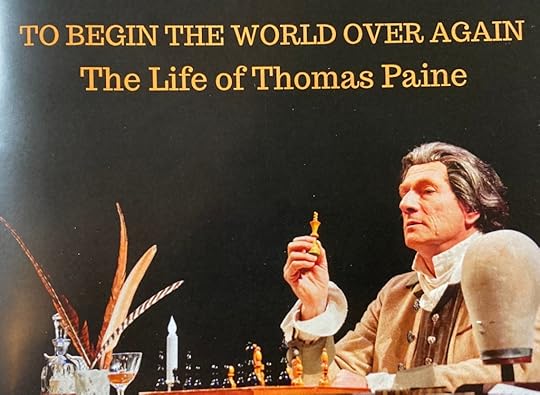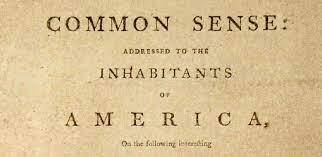Paul E. Fallon's Blog, page 14
January 5, 2023
The Opportunity—and Tyranny—of Life in a One-Party State

Today Maura Healey is being sworn in as Governor of the Commonwealth of Massachusetts, and I am officially living in a one-party state. Nationally, I am represented by a Democratic President, two Democratic Senators (Warren and Markey), and a Democratic a Congressperson (Clark). At the state level we now have a Democratic Governor to work with our overwhelmingly Democratic legislature. Both my State Senator and State Representative are Democrats. Locally, Cambridge City Councilors don’t run with party affiliation, but every elected official in the People’s Republic is a Democrat, except for those who fly further left on the political spectrum.
Although I am registered Independent, my politics more closely align with Democrats than Republicans. So, I should be happy, right? I am…and I’m not.
I was weaned in a New Deal loving household under the mystique of JFK and bluster of LBJ. Of course we hated Nixon, but only because we always knew he was a crook. I didn’t truly appreciate Jimmy Carter until I lived in rural West Texas and saw him through the eyes of fellow farmers. Today, Jimmy’s the best ex-President we’ve ever had, and an important role model for me.
My real political education began during Ronald Reagan’s presidency, when I learned: beware of an ideologue at the helm. If they’re not your ideologue, you’re better off with a mere administrator. And if their ideology does align with yours, they will be sure to disappoint.
Massachusetts has a long progressive history. We also have a penchant for moderate Republican governors, who often serve as a kind of palate cleanser to our regular diet of Democratic largesse. Most recently, Charlie Baker, who served as governor for eight years, botched up the T and sold out on the prison moratorium, but he also notched up housing opportunities, kept his nose clean, and did an all-around credible job. Baker was consistently rated the most popular governor in America, and if he’d wanted a third term, he would most likely have won. But Charlie Baker was just as disenchanted with the direction of the Republican Party as those of us who have nothing into do with it, so he retired. The GOP nominated a Trump-clone who was rounded defeated. Thus, our state has no viable Republican voices; perhaps not even any moderate ones.

These days, Massachusetts is a great place for many, but not all. The economy is sound, mostly because our economic engine—brainpower—is in constant demand. The booms and bust of extraction, agriculture, or even defense spending hardly affect us. We are the best educated state by numerous metrics, yet we continually import more grey matter. People come here from all over the world to study, and many stay. I’m an example of that myself.
So, with all these progressive politicians, and this flush economy, we must be implementing all sorts of social changes, right? Livable wages, affordable housing, early education, racial accord, climate resistance, enlightened social programs. If only…
Although I am glad I live in Massachusetts over any other state, I am not ignorant of the blinders that constrict our potential. Yes, we have a $15 minimum wage, but that hardly matters in a place where the most basic apartment rents for $2000+ per month. Yes, we have great career opportunities, but we also have a hard underbelly of folks who cannot function in our job market. Yes, we have a tighter social net than most any other state, but we also have an expanding homeless crisis. Riding my bike through Mass & Cass reminds me of Port-au-Prince after the Haiti earthquake. No state that harbors such deprivation can call itself civilized, yet alone progressive.

After living in Massachusetts for over forty years I recognize that the most significant public policy advances have occurred under split administrations: where a Republican governor and the Democratic legislature had to hammer out hard stuff. That’s how Ed King managed to bend back the moniker, ‘Taxachusetts.’ It’s how Mitt Romney created the blueprint for affordable healthcare that eventually went viral. It’s how Charlie Baker crafted the first real change in zoning density in my lifetime, with actual teeth that are beginning to chomp down on cities and towns that don’t hop on the increased density bandwagon.
In theory, Governor Healey and her team will be able to work with the legislature to accomplish more. After all, they’re at the same party. Yet I fear that the Dems’ penchant for intra-party bickering, and the fat-and-happy idlement that comes with enjoying a supermajority, will actually yield fewer accomplishments then when we engage in opposing, yet civil discourse.
The opportunity for Governor Healy to make Massachusetts a more equitable place is tremendous. Yet every single-party state in the world—regardless of its ideological bent—must brace against the proclivity to stop listening, grow overconfident, and dance with tyranny.

Here’s hoping our new Governor flies above those temptations and turns the rhetoric of progress into meaningful change.
December 28, 2022
Wish for the New Year

I want to live in a world where every baby is wanted.
I want to live in a world where every child is nurtured with love, self-control, and self-respect.
I want to live in a world where a parent who wishes, can stay home to rise their young child.
I want to live in a world where every child receives whatever they need to thrive.
I want to live in a world where children can just go outside and play.
I want to live in a world where the sound of ‘pop’ elicits wonder rather than fear.
I want to live in a world where every child attends a good, public school.
I want to live in a world where teenage imbroglios are addressed conscientiously in the moment and forgiven in the future.
I want to live in a world where gender expression and sexual expression are celebrated.
I want to live in a world where scholars are feted as athletes.
I want to live in a world that provides food and shelter, education and exercise, light and air to all.
I want to live in a world where opinions are voiced yet facts prevail.
I want to live in a world where every citizen votes.
I want to live in a world where human rights are universal, and individual rights require responsibility.
I want to live in a world where every young adult serves their nation in service.
I want to live in a world with universal basic income.
I want to live in a world in balance with nature, where we replenish whatever we extract.
I want to live in a world with more buses than cars; more trains than planes.
I want to live in a world with more bike lanes than motor lanes.
I want to live in a world in which building a family, a career, and a nest egg is spread out over longer, less frantic decades.
I want to live in a world where freedom of speech is coupled with responsibility for truth.
I want to live in a world where it’s easier to get nourishing food than debilitating drugs.
I want to live in a world where everyone can pursue the religion of their choice, or none at all.
I want to live in a world with an impenetrable wall between church and state.
I want to live in a world that promotes wellness rather than monetizes disease.
I want to live in a world that passes the mantle of power through generations, in peace.
I want to live in a world that engages its elders.
I want to live in a world that cherishes the memory of seven generations gone, and prepares for seven generations to come.

I will not live in that world in 2023, or 2323, or 23,023. Humans are the only species capable of shaping their own world, yet humans are also too selfish, short-sighted, and violent to ever create a truly just, equity and sustainable world.
Still, we must strive toward that vision. For though we may never achieve the world we want, we have the capability—and the responsibility—to improve the one we have.
Happy New Year to All!

December 21, 2022
TransHoliday

Over the past two years I have enjoyed a unique relationship with a trans person. Let’s call them Burt. Burt is half my age; years marked by violence and isolation. What commonalities we share—each of us are fathers—are shattered by how those commonalities play out. I have an ongoing relationship with my two children; Burt has two children they’ve never seen. I am often at a loss in how to react to the conditions of Burt’s life, but since the winds of fate brought us together, I figure it’s my opportunity to try to understand someone so very different from me.
It is easy, natural, for humans to relate to their own kind. To find accord with those with whom we are already in accord. It’s more challenging to accept our opposites. And even more threatening, as in the case of transgender people, to acknowledge those who occupy some ambiguous, nebulous. nether world. Thus my overt wish to understand and connect with Burt is blocked by my evolutionary fear of that which we cannot fathom.
Then I recalled a story I wrote twenty years ago. Before trans-anything was a thing. The story is about a boy forty years even further back. A thinly veiled tale about: me. A pudgy boy, age eight, alone, locked in the bathroom, occupying himself in the mirror, with a towel.

The towel came undone. A roll of terry cloth fell down my back. It cascaded behind me like a cape. Or a veil. Or a train. I looked straight at the mirror. The swath of beige highlighted my glorious form. I bent my arms in without lowering my elbows. A sweeping arc in a horizontal plane. I tucked the towel across the top of my pale chest. The mirror offered an image I had seen before. A straight line rising slightly, across a field of snowy skin, tucked demurely under a pair of arms. I puffed my chest. I enhanced the reflection. The edge of the towel fell in a vertical line, just left of center. Falling over my nipple. Running through my heart. A detail of simple elegance flowing from my bosom, past the reality of the mirror, beyond the vanity. I stood before the glass, my skin bristling, stupefied by the beauty before me.

Hardly the words of a man fixed in his masculinity. I’m gay, but not fem. I’ve never wanted to be a woman. And yet…as a boy, standing before the mirror…I held a fascination.
That long-ago story I wrote about a longer-ago time offers me an arc of connection with Burt. Even more, it reveals how none of us are as simple as we suppose. No one is entirely straight, or gay, or cis, or trans, or libertarian, or socialist, or right, or wrong. Burt’s life is a history of chaos, and yet their hope for the future is unbounded. They refuse to be bound by simple definitions.
When our days are short and dark, humans need to be closer to each other. Thus, every tradition celebrates holidays this time of year. I hope we all celebrate by finding someone seemingly unlike us beyond the basic fact of human existence; our own personal Burt. I hope that each of us finds more commonality in our neighbors than we expect. Even more, I hope we celebrate each other despite our commonalities. Simply because we are all here, and all of us matter.

December 14, 2022
Progressive Exaggerations to a Fault
“Learning a new language is hard, connecting with other people is hard, leaving your homeland is hard, no matter where you are. Here, in the U.S., if you are not an English speaker, you are almost immediately stripped of your humanity, your ability to connect with others, your ability to be your full self.”
I read these program notes by Director Melory Mirashrafi while waiting for Speakeasy Stage’s production of English to begin. I already knew the premise of Sanaz Toossi’s play: four Iranian students and their teacher in a TOEFL (Test of English as a Foreign Language) class in Iran, circa 2008. Still, these notes clawed at my throat. Yes, learning a new language is hard. It is also revelatory. Connecting with other people is hard. Duh! Leaving your homeland is hard. True, yet a bit off, since the play is about Iranians in Iran; they may have left and returned or they may wish to leave, but in the play, they are in their homeland.
Then comes the clincher clause, “…in the U.S, if you are not an English speaker, you are almost immediately stripped of your humanity, your ability to connect with others, your ability to be your full self.” Hyperbole at best, provocation at worst. And…simply not true.
I have never been an immigrant, though I have lived in countries where I did not speak the language. I also tutor ESOL (English as a Second Language) to actual immigrants. When I was in Haiti, I had to communicate rudimentally, but the experience did not strip me of my humanity. On the contrary, it made me more appreciative of how challenging communication can be, and broadened my view of human possibility. Similarly, when I tutor Haitian immigrants in the States, the our language gaps force us to connect in a more conscious, direct way. As to how an immigrant compromises their ability to be their full self when they arrive in a foreign land with a foreign tongue, I might remind Ms. Mirashrafi that they were likely not able to be their full selves in their homelands. Thus, the decision to emigrate.
Perhaps it is not fair to pick apart Ms. Mirashrafi’s notes. After all, they are just one of so many examples of progressive ideals stated to a point so extreme that they negate the underlying good intention.

A digital notice at my gym the other day, sponsored by Bridge Over Troubled Water, stated that 1 in 13 children are homeless. A statistic so shocking, it is unbelievable. Bridge Over Troubled Water is a well-established and respected intervention program for runaway teens; and without doubt the homeless situation in our country is terrible, and getting worse. But I simply cannot believe that 1 in 13 children are homeless. That equates to two children in every classroom in America. When a statistic is so discordant from any perception, whether direct experience or indirect reading, the result is not to heighten awareness and concern for a problem. It results in us discounting the entire message.
Later the same day, I read an internet notice that 40% of all children in Massachusetts suffer food insecurity. To be sure, I do not suffer food insecurity. However, I work in a Food Bank, pack and deliver boxes to all sorts of folks in need. So I know that, despite living in one of the most affluent cities in America, hunger exists too often in too many places. But 40%—ten or twelve children in every classroom in America—is so incredible as to cast doubt. An internet search reveals that childhood hunger in America varies from 6% to 9% to 13% to 20%. Any of those percentages are too high for a nation that calls itself civilized, but none approach the 40% figure that was obviously heralded to capture attention.
I decided to explore the definition of ‘food insecurity” and discovered that, in many surveys, it is a self-described condition. A person with an empty pantry should surely describe themselves as food insecure. Then again, I met a person all agitated because Whole Foods did not have the array of lettuces she desired. Would they self-describe as food insecure?

Others may chide me that conservatives also exaggerate, often with even more outlandish statements and statistics. I totally agree. However, to quote my wondrous mother, “Two wrongs do not make a right.” Since I argue progressive points more often than conservative ones, I seek reasoning that’s valid rather than pumped up.
Each of these examples illustrate how progressives damage their own agenda through exaggeration, whether through inflated statistics of woe or by normalizing exceptions as the rule. When Bob Dylan sang, “I pity the poor immigrant who wished he’d stayed at home,” he connected with that particular immigrant for whom a new land, a new language, resulted in diminished humanity. He did not smatter that pathos over all immigrants. I wonder why Ms. Mirashrafi feels the need to do so when, to me, it dilutes her entire argument.
When the lights went down, I watched English. It’s a good play, though not as gripping as I hoped. Oddly, the play proved Ms. Mirashrafi’s notes even more inappropriate than my initial perception. On the surface, English may be a play about learning a foreign tongue. But it’s universal appeal is in five specific characters, striving to be their fullest selves, by making connection in their fullest humanity.
December 7, 2022
Let’s Make Guns the New Tobacco

I came of age in the era of glamorous smoking. Forty-six percent of Americans—including nearly everyone that mattered—smoked cigarettes. I gave my parents curlicued ashtrays as birthday gifts. Their friends offered each other glittery lighters. And of course, everyone in the movies was cloaked in an alluring, smoky haze. When Lana Turner, or Bette Davis, or James Dean, or Dean Martin lit up, Joe Smoe in the mezzanine wanted to be just like them.
When the 1964 Surgeon General’s Report stated that smoking causes cancer, few even knew what a Surgeon General was. Suddenly, the title was on everyone’s lips. A few people stopped smoking immediately. Most tried and failed. Smoking cessation became a cottage industry. Habits die hard.
I can recall walking MIT’s infinite corridor in 1973 and seeing the American Cancer Society’s poster, “Smoking is Very Glamourous.” The impact of the slogan and its discordant image was immediate. Yet smoking remained socially acceptable and ubiquitous. As late as 1986, the guy at the desk across from me in a major architectural firm lit up all day long. But research on second-hand smoke rallied non-smokers to action. Within three years, the firm created to a ‘smoking lounge’ alternative that soon buckled into a full-on ‘no smoking’ policy. Smokers became pariahs, marooned on the bleak sidewalks of Boston winters.

More than fifty years since the Surgeon General’s report, our societal views on smoking have come full circle. Today, only 18% of Americans smoke, less than half as many as when I was a child.
What created this tidal change? Science. And publicity. In a consumer society, saturated with advertising messages, the fact that smoking causes cancer is not enough to change behavior. It took warnings on cigarette packages and decades of public service campaigns to change our understanding that “smoking is very glamourous” is an oxymoron, if not an outright lie.
Today, gun violence is killing too many of our fellow citizens, while stirring fear in the rest of us. No amount of dead Sandy Hook first graders, Columbine high schoolers, Orlando night club revelers, or Las Vegas concert goers can move the needle of gun control. Stats alone will not create the change demanded of this crisis. We need a public health campaign to change our collective perception of guns.
A recent article it the Boston Globe opened my eyes to how we are losing this PR campaign. Smith & Wesson used to target their ads to hunters and sportsmen. Now they focus on fear, and gun sales soar.

In 1964 people were shocked, shocked, to learn that a central element of our society was killing us. It took decades to turn the glamour of smoking on its head. In 2022 we know full well that a cornerstone of our democracy—the right to bear arms—has been contorted beyond reason. We witness the deaths caused by this violence, and are only beginning to understand the psychic toll all these guns are taking on our children and our communities.
Once upon a time we thought smoking was glamourous. Now we know it only causes cancer. Today we consume a steady diet of ads that proclaim guns make us safe, even as statistics show that owning a gun only makes you more likely to die by a gun. But humans are stubborn, irrational creatures, and facts alone won’t change our behavior. We need to counter the myths with a public health campaign and change our nation’s attitudes about guns. We know how to do it; we have done it before. We can do it again.
December 1, 2022
World AIDS Day: Words and Images of Provincetown AIDS Memorial

Steve’s
holding Jerry, though he’s already gone,
Marie holding John, gone, Maggie holding
her John, gone, Carlos and Darren
holding another Michael, gone
and I’m holding Wally, who’s going.
“Atlantis” Mark Doty

Transcendence might be the term Emerson would lend it.
What I’m trying to say is that it wasn’t lonely.
“R.I.P. My Love” Tory Dent

Look: I am building absence
out of this room’s air
“Drawing from Life” Reginald Shepherd

We are all made of
our own people laying names on the ground
“Naming the Elements” Michael Klein

Most of it happened without music, the click of the spoon from the kitchen,
someone talking, somebody sleeping
Someone watching somebody sleep.
“Without Music” by Marie Howe

November 22, 2022
Let Us Give Thanks
Kudos to my friend, Docey Lewis, for sending me this poem. I plan to read it at our Thanksgiving table. It is doubly appropriate since I will be celebrating with a gentleman farmer.

LET US GIVE THANKS
Let us give thanks for a bounty of people
For children who are our second planting
and though they grow like weeds
and the wind too soon blows them away,
May they forgive us our cultivation
and remember fondly where their roots are.
Let us give thanks:
For generous friends, with hearts as big as hubbards
and smiles as bright as their blossoms;
For feisty friends as tart as apples;
For continuous friends, who, like scallions and cucumbers,
keep reminding us we’ve had them;
For crotchety friends, as sour as rhubarb
and as indestructible;
For handsome friends, who are as gorgeous as eggplants
and as elegant as a row of corn,
and the others, as plain as potatoes and so good for you;
For funny friends, who are as silly as Brussels sprouts
and as amusing as Jerusalem artichokes,
and serious friends, as complex as cauliflowers
and as intricate as onions;
For friends as unpretentious as cabbages,
as subtle as summer squash,
as persistent as parsley,
as delightful as dill,
as endless as zucchini,
and who, like parsnips,
can be counted on to see you throughout the winter;
For old friends,
nodding like sunflowers in the evening-time
and young friends coming on as fast as radishes;
For loving friends, who wind around us like tendrils
and hold us, despite our blights, wilts, and witherings;
And finally, for those friends now gone,
like gardens past that have been harvested,
but who fed us in their times
that we might have life thereafter;
For all these we give thanks.
— Max Coots
November 16, 2022
Theater Dread: The Talk Back

The other night, I got stuck. Fourth row center at a performance of Ian Ruskin’s one-person show, To Begin the World Over Again: The Life of Thomas Paine.
I was excited to see this show, presented by the Associates of the Boston Public Library. I have been a huge Thomas Paine fan ever since the fourth grade, when I read a juvenile biography of the man who used the pen, rather than the sword, to achieve independence. For over fifty years, whenever asked who my hero was, the answer has always been: Thomas Paine. I’ve written about him in this blog (Common Sense and On January 6: The Wisdom of Thomas Paine). A few years ago I felt an even closer connection to my hero when I discovered Edward G. Gray’s book, Tom Paine’s Iron Bridge: Building a United States. The guy was not only a persuasive writer, he was also an enlightened architect/engineer!
The play was excellent history, if not exactly compelling theater. Mr. Ruskin moved between three set pieces, representing England, the United States, and France: the three place Thomas Paine lived through his long and chaotic life. As an Enlightenment idealist with little formal education and no interest or ability to make a buck, Thomas Paine enjoyed universal fame, huge sales (for which he abandoned copyright according to his principles), scandal, and imprisonment. He was feted for bringing the intellectual underpinnings of the America Revolution to the average man in the colonies, and later doing the same for the peasant in the French Revolution. Yet, in each case, he was later denounced by the government that took hold, as well as the one that was overthrown. He died penniless and unknown. To this day, the location of his remains is a mystery.

After a satisfying 75 minutes of history brought to life, Mr. Ruskin stood aside while the lights dimmed. Then stood forward as they came back up, and asked for questions.
I looked about, trapped. As much as I love theater, I detest Q&A’s, and talkbacks are even worse. The way I see it, Mr. Ruskin researched his subject, wrote the play, and performed it admirably. He had 75 minutes to tell us what he wanted to say, in the manner he chose. What can possibly be improved upon by following his stirring close with the mutterings of audience members who either missed points because they weren’t paying attention; or worse, introduce queries spouted wide of the mark.
In previous experience, performances that will include a talkback note that on the program. When that’s the case, I sit on the aisle to facilitate a speedy exit. Even then, custom dictates a five-minute break between the play and the Q&A, to allow those of us who wish to exit. BPL did neither of these. Thus, I was stuck, fourth row center, to listen to forty-five minutes of audience members pontificating what they knew about Thomas Paine, before offering poor Mr. Ruskin some stale question.
I don’t know who invented the talkback. I imagine it was someone’s engaging notion of participatory theater. I don’t mind if they occur, so long as I am forewarned and can escape. Hopefully, with the power of the playwright’s words and the actor’s revelations still resonating in my head.
November 9, 2022
Condemn…Malign…Tolerate…Accept…Embrace
The Step Ladder of a Free and Open Society

Why do people care so much—to the point of hatred, even violence—what other people do? Even when it has little direct bearing on their lives? Why do people hate gay people, transgender people, people of color, and people who get abortions? It makes no logical sense: exerting so much energy hating someone whose actions barely impinge on yours.
That fact that I am gay is completely independent of whatever moral or religious perspective you choose. Although I have no personal experience or insight into what motivates a person to be transgender, I can understand that it’s a momentous decision; and so I must respect any fellow human being who makes that change with care and deliberation. There is no more objective reason to disdain a person with dark skin than there is to favor a person with fair hair, beyond millennia of human history that bolster both of those prejudices. And whether I decide to bring a child into this world (if, alas, I could) has nothing whatsoever to do with your moral perspective. By all means, live by the moral code of your choice. But why put it on me?

I am, of course, being flip here. We all know why people care so much about what other people do. Fear. We are all so fricking insecure that we need others to be like us, to think like us, to act like us.
I can imagine how this fear might be internally generated, perhaps as consequence of bad experiences. But for most of us, most of the time, this fear is externally applied by a culture awash in advertising; alternative facts; dubious economics; and tried-and-true political ploys. For over two thousand years, Julius Caesar’s dictum—divide and conquer—has proven to be infallible advice.
Sometimes, we can trace our hate of the ‘other’ as an actual hindrance in our lives. I don’t like vaccine-deniers, smokers, and morbidly obese adults who pump up my health insurance premiums by their slack behavior. Yet I hold my tongue because I realize their impact on me is at best, a second order effect (just like the pablum that immigrants will steal your job or gays will convert your children). More importantly, I have to acknowledge that my monkish behavior is not a viable universal model. We need to grant each other some grace, even celebrate the fact that we are quirky in our own ways.
When we stop considering others as evils to be controlled, or even annihilated, we can begin to ascend what I call the step ladder to a free and open society. The dominant feature of any autocratic society is that it establishes hierarchies that pit people against each other. That is how the rulers stay on top. Meanwhile, the dominant feature of any open society is that it acknowledges all as equal participants. To be sure, there has never been a society on earth that truly meets this definition of a free and open society. Some, like the United States, aspire to that ideal in theory while falling far short in fact. Others, like Iran, make no such pretense.

So where are we, the United States of America, on this step ladder of openness today? I give us a middle rung spot. We tolerate differences: just barely. And we’re quick to use them as political and economic lightning rods. And there’s ample evidence (see Dobbs vs. Jackson Women’s Health Organization) that our position on the tolerance rung is shaky.
Yesterday, the US endured the mid-term election. It appears, the houses of Congress will be split. To me, this signifies two more years of rancorous non-doing. Perhaps we will hold on to some modicum of tolerance. Yet we are far from moving up to a rung of accepting others however they wish to live. Because let’s face it, the ladder of treating all humans with mutual respect is a precarious one. The higher up one climbs towards embracing all, the more difficult it is to keep it steady.
November 2, 2022
HGTV Eco-Extreme: Precious Edition
Gracious Producers,
HGTV has thrived for over twenty-five years with programs based upon the simplistic premise that every house in the US of A demands to be gutted, open-flowed, and subsequently trimmed out with rustic mantels, pickled floors, and media centers. Not to mention granite. Madagascar-size islands of granite. Your formula is genius: product placement that scratches the itch that every one of us still slumming in the doldrums of 2019’s Color of the Year. What was Metropolitan, really? At best: timid taupe. In reality: drab grey. Three years on, it’s so boring everyone in America pines to repaint. But I digress.

What HGTV needs is a fresh formula. A rebuttal to those astronomically profitable shows rutted in the identical plotline: churn our yearn for excitement into a crave for interior glitz that leads (inevitably) to demolition to create space, space, space for a bunch of new stuff, stuff, stuff so when the reveal unfolds, the wife cry tears of joy. Everything—except her blotchy face—looks fabulous as the camera pans.
HGTV should consider diversifying into that miniscule market niche of non-consumers. The contra-demographic. The sustainability audience aching for a net-zero dream.
Everything about Eco-Extreme flips the successful HGTV formula on its head. Start with the hosts. Forget another burly builder-type with a massive beard with his petite, bubbly designer wife. The hosts of Eco-Extreme will be Luis and Maria, the Fix-it gurus from Sesame Street. They may not be as young and photogenic as during their forty-four years on public television. And Luis is, in fact, dead. But resilience is all about bringing new purpose to life. The pair will recycle beautifully.

Every property Maria and the ghost of Luis renovate will reuse 100% of the materials already in place. What few fresh materials are required will be so locally sourced, a child can deliver them with a little red wagon, carefully protected by a biodegradable container. Nothing plastic will ever taint Eco-Extreme.
Eco-Extreme will also break new ground for HGTV by abandoning the climatic demolition scene currently embedded in each half hour. We will rekindle that ancient and treasured totem: the room. No more bowling alley wannabe’s where last night’s dirty dishes are in full view of the sofa and the Barcalounger and the dining table. Gone is the acoustical tug-of-war between the kitchen appliances and the television—every function will have its place, it won’t ooze into other spaces.
I realize that the demolition scene is an essential and dramatic moment in every HGTV renovation show. Eco-Extreme tackles demolition at a completely different scale. One that demands more subtle, nuanced camera work. No more action shots of hirsute guys yielding crowbars and axes. Instead, steady hands burnish 200 count sand paper over yellowed lacquer on natural ash woodwork. Imagine the television audiences’ gasp as the natural luster returns. Even more thrilling will be deleading an ornamental mantle with a dental pic. Bringing ancestral hardwood that has been encased in lead for over a hundred years back to life will make the audience swoon, despite the high-ventilation fans whirling to make this dangerous work safe to the white-suit encased artisans.

Eco-Extreme: Precious Edition embraces the notion that when a family purchases a heritage colonial, or a turreted Victorian, or an Arts & Crafts bungalow, that’s actually the style they want. They seek a delight that unfolds, room by room instead of blowing everything on a grand first impression that takes in front door to back yard in one grand sweep, leaving the occupants to wonder, the moment the cameras leave, whether Peggy Lee was right after all. Is That All There Is?



